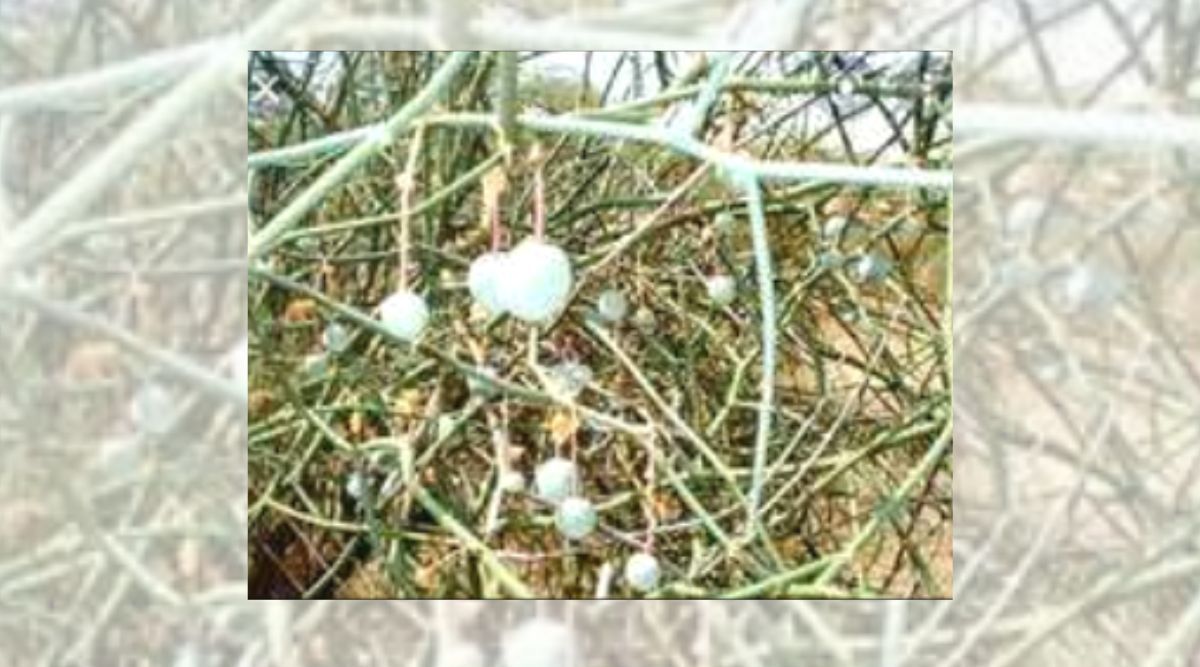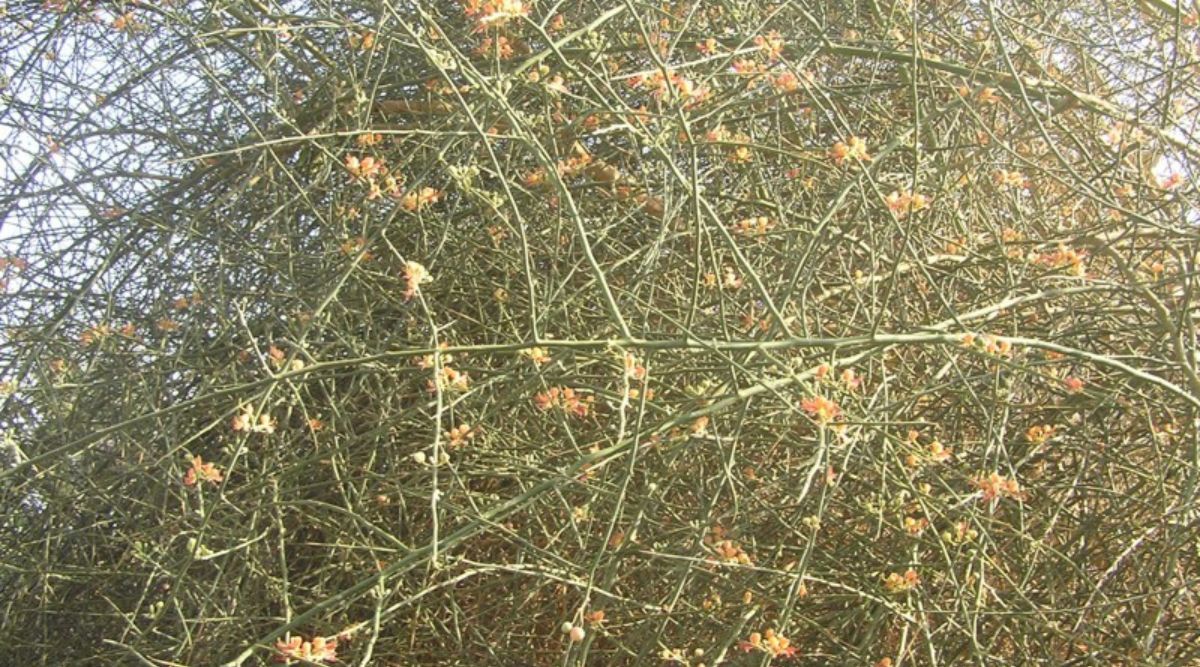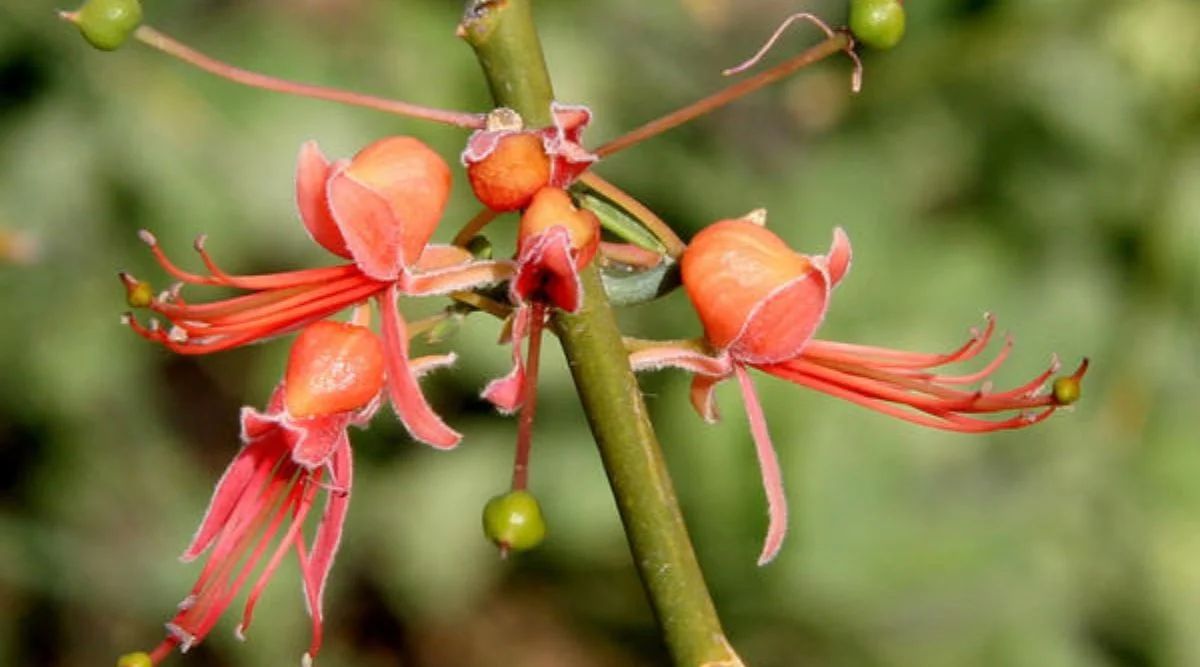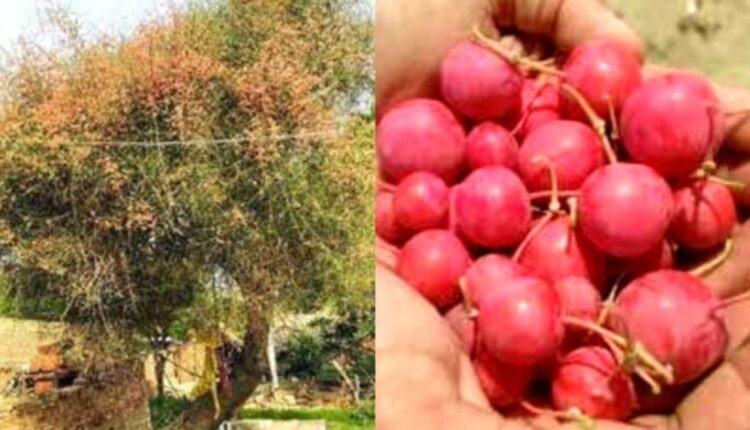Kair Farming: Grows even in barren land
Know everything about Kair Farming, It is full of medicinal properties
If you have been to Rajasthan, then you must have eaten Kair Sangri curry. Kair is a special fruit there, which mostly grows only in Rajasthan. The reason for this is that the climate there is suitable for the cultivation of Kair. Although it grows there in the form of a bush, but farmers can earn good income by cultivating kair commercially. There is a lot of demand for Kair in making pickles and vegetables. Not only this, it is also very useful for stomach ailments. Kair is known by many names like Karir, Keriya, Karia and Tint. It is also called Caperis decidua. Its plant is originally from the Thar Desert.
Kair Cultivation: How is the plant grown?
The kair plant is up to 3-5 meters high. Its branches are dark green, and the colour of the unripe fruit is green. The fruit turns red after ripening. The leaves of its tree are very small and do not last long. That’s why the tree often looks like a bush without leaves. Its plants need very little water, so it grows easily even on barren land.

Use
Many elements like protein, carbohydrates, fibre, calcium, phosphorus, iron, and vitamin C are found in kair. That’s why it is considered very beneficial for health. Vegetables, pickles, chutney, curry are made from raw kair. People of Rajasthan like it very much. There, in the local language, Kair is also called Dhalu. Apart from the fruit of kair, its flowers, bark, and roots are used to make medicine. Its wood is very strong, so it is used in making agricultural machinery. Planting kair trees in sandy soil areas helps in preventing soil erosion.

Climate and soil
Kair can be cultivated well in arid and semi-arid regions. It can tolerate temperatures ranging from zero to 50 degrees. By the way, the temperature of 30-35 degree is considered suitable for the cultivation of Kair. It can be cultivated in all types of soil, sandy, barren, gravelly, stony, just the soil should not be waterlogged. Its plants bear fruits twice a year.
Plant preparation
Kair plants can be produced from both cuttings and seeds. However, planting from seed is delayed in bearing fruit, while plants prepared from cuttings start bearing fruit only about three to four years after transplanting. The month of July is considered best for the preparation of saplings. If the plant is to be prepared from the seed, mix sufficient fertilizer in the soil and fill it in polythene and put the seed in it.
It germinates only after about 10 to 15 days of sowing the seed. Its sapling can be planted in the field after about one year. If preparing saplings from cuttings, then grafting and pen pressing method can be adopted for this. By both the method the sapling can be prepared in the rainy season. Before planting the prepared seedlings in the field, plow the field thoroughly and remove the old crop residues. Saplings have to be planted by digging pits.

Intercropping for extra income
Kair plants neither require much irrigation nor special care. Therefore, other crops can be easily grown with it, which will give additional income to the farmers. With this many crops like moth, guar, sesame, bajra, kachri can be cultivated.
Crop and income
A 6-7 year old tree of Kair gives 3-5 kg of fruits. Whereas from this old plants can get fruits up to 12-15 kg. 400 plants can be planted in one hectare, from which 45 to 60 quintals can be yielded. Raw fruits sell for Rs 70 to 100 per kg, while after drying or making other products, they sell for Rs 800 to 1200 per kg, which gives good income to the farmers.
Also Read: Drumstick Cultivation: Scientific methods gives fruits twice a year
Contact us – If farmers want to share any valuable information or experiences related to farming, they can connect with us via phone or whatsapp at 9599273766 or you can write to us at “kisanofindia.mail@gmail.com”. Through Kisan of India, we will convey your message to the people, because we believe that if the farmers are advanced then the country is happy.
You can connect with Kisan of India on Facebook, Twitter, and Whatsapp and Subscribe to our YouTube channel.

